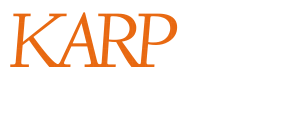Quality Assurance
Crafting excellence through meticulous testing
Software Quality Assurance is essential for delivering reliable, secure, and high-performing software that meets customer expectations and industry standards. By ensuring that quality is built into every stage of development, SQA not only enhances the end product but also reduces costs, improves team collaboration, and strengthens the brand’s reputation. In a competitive and fast-paced digital world, effective SQA is a key driver of long-term success and customer satisfaction.
Key Benefits of Effective Quality Assurance
Ensuring Product Reliability
- Bug Detection and Resolution: Software Quality Assurance (SQA) plays a crucial role in identifying and fixing bugs before the software reaches end-users. By catching errors early, SQA ensures that the product is reliable, reducing the likelihood of crashes, data loss, or unexpected behavior that could harm the user experience.
- Stable Performance: SQA ensures that software performs consistently under various conditions. This includes verifying that the software can handle peak loads, perform well under stress, and maintain stability over time, which is essential for user trust and satisfaction.
Enhancing Customer Satisfaction
- Delivering Quality Products: High-quality software that meets or exceeds customer expectations is more likely to gain positive feedback and repeat business. SQA helps ensure that the final product is free of defects and fully functional, leading to greater customer satisfaction and brand loyalty.
- User-Friendly Design: SQA includes usability testing to ensure that the software is easy to use and intuitive. By focusing on the user experience, SQA helps create software that is not only functional but also enjoyable to use, leading to higher user adoption rates.
Reducing Development Costs
- Early Detection of Issues: Identifying and addressing issues early in the development process through SQA saves significant time and resources. Fixing bugs during the later stages of development or after release is far more costly and time-consuming than addressing them upfront.
- Minimizing Rework: Effective SQA processes reduce the need for extensive rework by ensuring that each phase of development meets quality standards. This leads to more efficient use of resources and lower overall project costs.
Meeting Compliance and Standards
- Regulatory Adherence: In industries such as healthcare, finance, and aerospace, adhering to regulatory standards is non-negotiable. SQA ensures that software complies with relevant industry standards and regulations, avoiding legal issues and potential fines.
- Certification Readiness: SQA prepares software for certification processes, which are often required for market entry in regulated industries. Meeting these standards through rigorous quality assurance ensures that the software can be legally and confidently deployed.
Improving Security
- Identifying Vulnerabilities: SQA includes security testing to identify and address potential vulnerabilities in the software. This proactive approach helps protect the software from security breaches, data theft, and other cyber threats.
- Ensuring Data Integrity: By maintaining high standards of quality and security, SQA ensures that sensitive data is protected and that the software can be trusted to handle critical information safely and securely.
Facilitating Continuous Improvement
- Ongoing Feedback Loops: SQA provides continuous feedback to the development team, allowing for ongoing improvements throughout the software lifecycle. This iterative process helps refine the product, making it more robust and better suited to user needs.
- Benchmarking Quality: By establishing quality benchmarks, SQA helps teams set and maintain high standards, driving continuous improvement and ensuring that each release is better than the last.
Enhancing Team Collaboration
- Cross-Functional Communication: SQA fosters collaboration between development, testing, and operations teams, ensuring that quality is a shared responsibility. This cross-functional approach improves communication, reduces misunderstandings, and leads to better overall outcomes.
- Unified Quality Goals: SQA aligns the entire team around a common goal—delivering a high-quality product. This shared focus helps ensure that everyone is working towards the same objectives, enhancing teamwork and project cohesion.
Building Brand Reputation
- Delivering Trustworthy Products: Consistently delivering high-quality software builds trust with customers and enhances the brand’s reputation. A strong reputation for quality can be a significant competitive advantage, leading to higher customer retention and attracting new clients.
- Avoiding Negative Publicity: Poor quality software can lead to negative reviews, customer dissatisfaction, and bad publicity. SQA helps prevent these issues by ensuring that only well-tested, reliable software reaches the market.
Supporting Agile and DevOps Practices
- Continuous Integration and Delivery: SQA is integral to Agile and DevOps practices, where continuous testing and integration are essential. By embedding quality assurance into the development pipeline, teams can deliver high-quality software faster and more efficiently.
- Rapid Release Cycles: In fast-paced development environments, SQA ensures that quality is not sacrificed for speed. It enables rapid release cycles by automating testing and integrating quality checks throughout the development process.
Ensuring Long-Term Success
- Scalability and Maintenance: SQA ensures that software is scalable and maintainable, allowing it to grow with the business and adapt to future needs. High-quality software is easier to update, extend, and maintain, contributing to long-term success.
- Future-Proofing Software: By focusing on quality from the start, SQA helps future-proof software against potential issues, ensuring that it remains viable and valuable over its lifecycle.
How Karp can help ?
At Karp Infotech, we firmly believe that quality assurance is an integral part of the Software Development Life Cycle (SDLC). We employ both manual and automated testing throughout the development process, utilizing Behavior Driven Development (BDD) methodology. Our quality assurance practices include use of various automation methodology and tools such as BDD, Cucumber Studio, Selenium.
